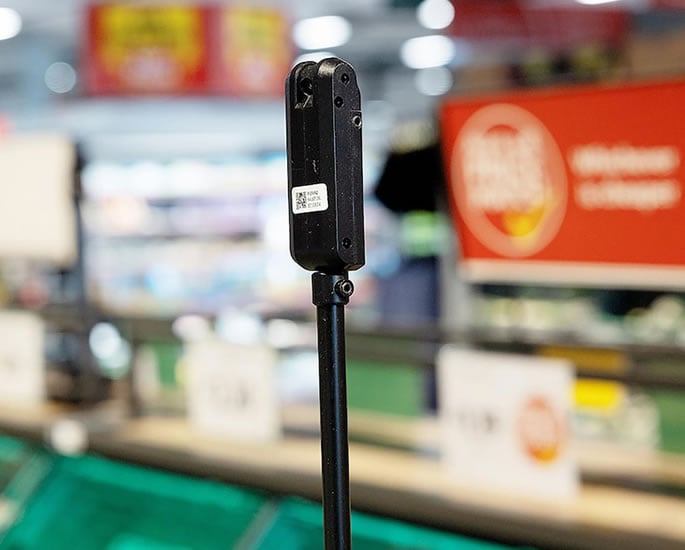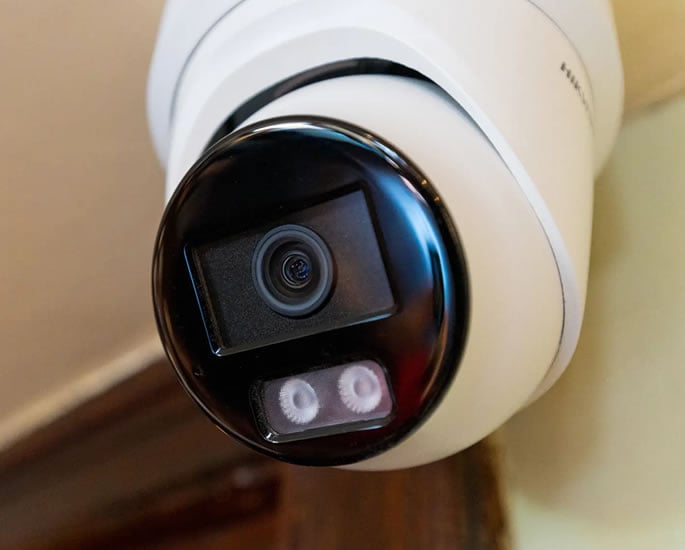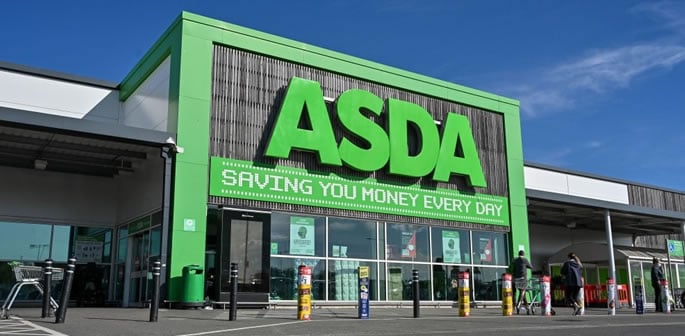"a fully automated, intelligent retail operating system"
Artificial intelligence is becoming a growing part of the UK supermarket experience, with Asda testing new technology across some of its stores.
In March 2025, the retailer trialled live facial recognition technology to tackle rising levels of retail crime in a bid to improve safety for staff and customers.
Asda is now trialling AI-powered cameras to monitor stock levels.
These systems promise to automate the process of detecting empty shelves, spoiled produce, and low availability.
The two pilots highlight how the supermarket is exploring AI’s potential both for operational efficiency and store safety.
Both projects reveal how technology is reshaping the way retailers interact with customers and staff.
Monitoring Stock

Asda has installed Focal Systems cameras in five stores to track changes in stock. The devices are placed on poles at the end of aisles, scanning around eight feet of shelf space opposite.
The cameras capture hourly images of shelves to detect in-stock levels, low stock, out-of-stocks, spoiled produce, and other conditions.
The cameras are placed down aisles on poles, at the top of shelves.
It is believed that the AI-powered cameras provide a view of around eight feet of shelf space opposite.
According to The Grocer, the technology is still in its early pilot phase.
In April 2025, Focal Systems CEO Kevin Johnson revealed that “deep learning breakthroughs in computer vision have enabled the precise identification of products, shelf conditions, and anomalies in highly complex and dynamic retail environments”.
He also explained how the “innovations have transformed what was once a manual, time-consuming process into a fully automated, intelligent retail operating system – making real-time shelf visibility not just possible, but powerful”.
This is due to the “advances in edge computing”, meaning data can be “processed locally” and “improved cloud infrastructure supporting integration with retailer systems”.
Facial Recognition Cameras

In March 2025, Asda began a separate trial of live facial recognition in five Greater Manchester stores: Ashton, Chadderton, Eastlands, Harpurhey, and Trafford Park.
The two-month pilot was designed to address what the supermarket described as an “epidemic of retail crime”.
The company recorded around 1,400 assaults on workers in 2024, averaging four per day.
This mirrors a wider crisis, with the British Retail Consortium reporting over 2,000 daily incidents of violence and abuse against shopworkers across the UK.
Liz Evans, Chief Commercial Officer, Non-food and Retail at Asda, said: “The rise in shoplifting and threats and violence against shopworkers in recent years is unacceptable and as a responsible retailer, we have to look at all options to reduce the number of offences committed in our stores and protect our colleagues.
“We consistently look for new ways to improve the security in our stores and this trial will help us understand if facial recognition technology can reduce the number of incidents and provide greater protection to everybody in our stores.”
The system works by comparing faces captured on CCTV to a database of known offenders who have previously committed criminal activity in Asda locations.
If a match is found, a member of Asda’s head office security team verifies the information before alerting store staff in real time.
Asda’s recent trials show how AI is becoming central to the future of retail.
Stock-monitoring cameras offer a clear path to efficiency and reduced waste, while facial recognition technology may improve safety but raises privacy questions.
Artificial intelligence is steadily reshaping supermarket retail, from streamlining stock management to enhancing security.
Trials like Asda’s show how technology can improve efficiency, reduce losses, and support staff safety.
At the same time, innovations raise important debates about privacy, trust, and the role of surveillance in everyday shopping.
As retailers continue to experiment with AI, the challenge will be balancing operational benefits with customer confidence.
The future of supermarkets will likely be defined not only by technological advances but also by how well companies address public concerns while delivering a better shopping experience.






























































